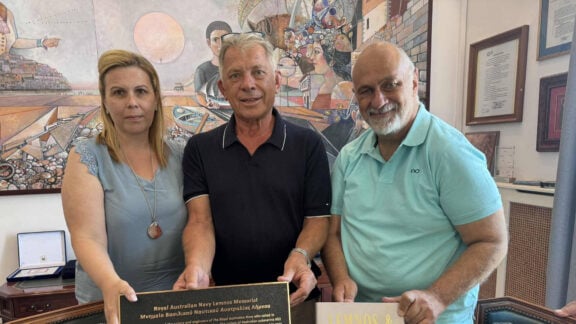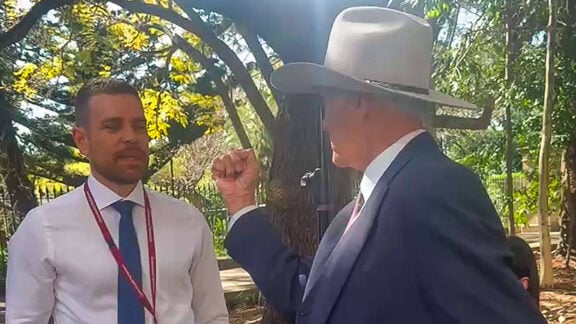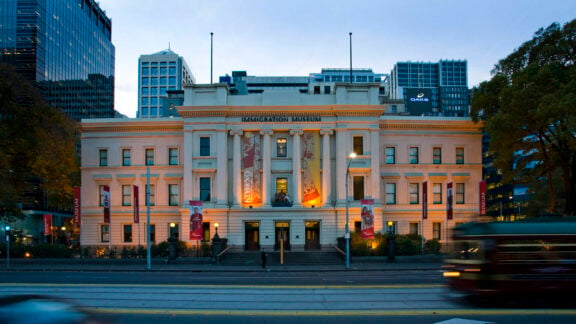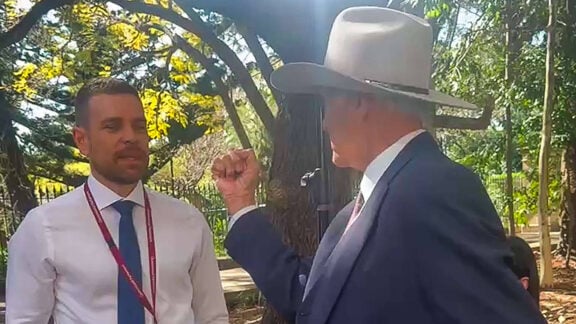Thousands of Greek students staged sit-ins and demonstrated in Athens and other cities on Friday to demand justice for the victims of the country’s worst train tragedy.
In the capital, over 5,000 people gathered outside the headquarters of operators Hellenic Train – which took over network operations in 2017 – to protest at decades of failure to improve rail network safety, despite close calls in past years.
Police clashed with some of the demonstrators at a handful of protests, as public anger grew over the role that government mismanagement played in the tragedy.
“Murderers!” the crowd cried out as protesters daubed the word on the building’s glass façade in red.
“We are boiling with rage. It’s unacceptable for such a tragic event to happen in the year 2023,” said protester Angelos Thomopoulos.
“We are taking to the streets today… to demand that those responsible for this tragedy are held accountable and that nothing is covered up,” he told AFP.
The protesters were mostly university students of similar ages to many of the victims of Tuesday’s crash – the country’s worst rail tragedy.
“They were young like ourselves,” Aphrodite, a 20-year-old biology student, told AFP during the Athens protest.

Another protester, Maria Psacheli, said her own child was a frequent traveller on the same route to go to university.
“I’m thinking of the victims’ families,” she said with tears in her eyes.
Hundreds of people also demonstrated in Larissa – near the site of the disaster, Patras and other cities.
Later protests are scheduled in Athens and Greece’s second largest city, Thessaloniki.
Demonstrators carried banners reading “Text me when you get there” – a message apparently sent by the mother of one of the young victims, which has also appeared prominently as a protest slogan in recent days.
Many protesters carried black flags.
Prime Minister Kyriakos Mitsotakis, who is seeking re-election this spring, has blamed the disaster on “tragic human error”.
But protests blaming government mismanagement continued on Friday, in the capital Athens and several major cities across Greece.
“What happened was not an accident, it was a crime,” said Sofia, a 23-year-old student at Thessaloniki. “We can’t watch all this happen and remain indifferent.”
The disaster has sparked widespread criticism of government failures in its management of the rail network.
“Most of us knew people who were killed or wounded,” said Sophia Hatzopoulou, 23, a philosophy student in Thessaloniki who was visibly angry.
“It’s as if a part of us were lost.”

Many unaccounted for
At least 57 people died on Tuesday when a passenger train collided with a freight train just before midnight, after running on the same track for several kilometres.
There were over 350 people on board the passenger train and many are still unaccounted for.
Most of the victims were students in their 20s returning from a long weekend.
Students and pupils were staging sit-ins in over two dozen university faculties and schools around the country.
Black sheets were draped at the entrances of several universities.
In Larissa, white roses were thrown onto the tracks of the local train station.
Survivors of the crash described scenes of horror and chaos. Some relatives were still desperately awaiting news of missing loved ones.
Roubini Leontari, the chief coroner at Larissa’s general hospital, told broadcaster ERT on Thursday that more than 10 people were still unaccounted for, including two Cypriots.
Greece’s train services were paralysed on Thursday by striking workers arguing that successive administrations’ mismanagement of the network had contributed to the fatal collision.
That strike continued into Friday and is set to continue for another 48 hours more.

The Larissa station master on duty at the time of the disaster has been arrested and charged with negligent homicide.
He has accepted partial responsibility for failing to reroute the trains and faces a possible life sentence if convicted.
But train unionists note that safety problems on the Athens-Thessaloniki railway line had been known about for years.
Safety systems on the line are still not fully automated, five years after the state-owned Greek rail operator Trainose was privatised and sold to Italy’s Ferrovie Dello Stato Italiane and became Hellenic Train.
“I knew that line was not safe… I was always afraid to take the train,” Aphrodite said.
A bomb threat made against the company on Friday was found to be a hoax.
Complete evaluation
Rail unions say safety problems on the Athens-Thessaloniki railway line had been known about for years.
The 59-year-old station master at Larissa has been charged with negligent homicide, but his lawyer has argued that other factors were at play.
“My client has assumed his share of responsibility,” lawyer Stefanos Pantzartzidis said Thursday. “But we must not focus on a tree when there is a forest behind it.”
ERT reported that the station master had only been appointed to the post 40 days earlier — and after just three months’ training.
But legal sources suggested that investigators were considering criminal charges against members of the management of Hellenic Train.
Police seized audio files and other items during a raid on the Larissa train station in central Greece, where the crash happened, a judicial source told AFP.
For decades, Greece’s 2,552-kilometre (1,585-mile) rail network has been plagued by mismanagement, poor maintenance and obsolete equipment.
After the country’s transport minister resigned on Wednesday in the wake of the crash, his replacement, Giorgos Gerapetritis, vowed a “complete evaluation of the political system and the state”.
Safety systems on the line are still not fully automated, five years after the state-owned Greek rail operator Trainose was privatised and sold to Italy’s Ferrovie Dello Stato Italiane and became Hellenic Train.
Source: AFP









